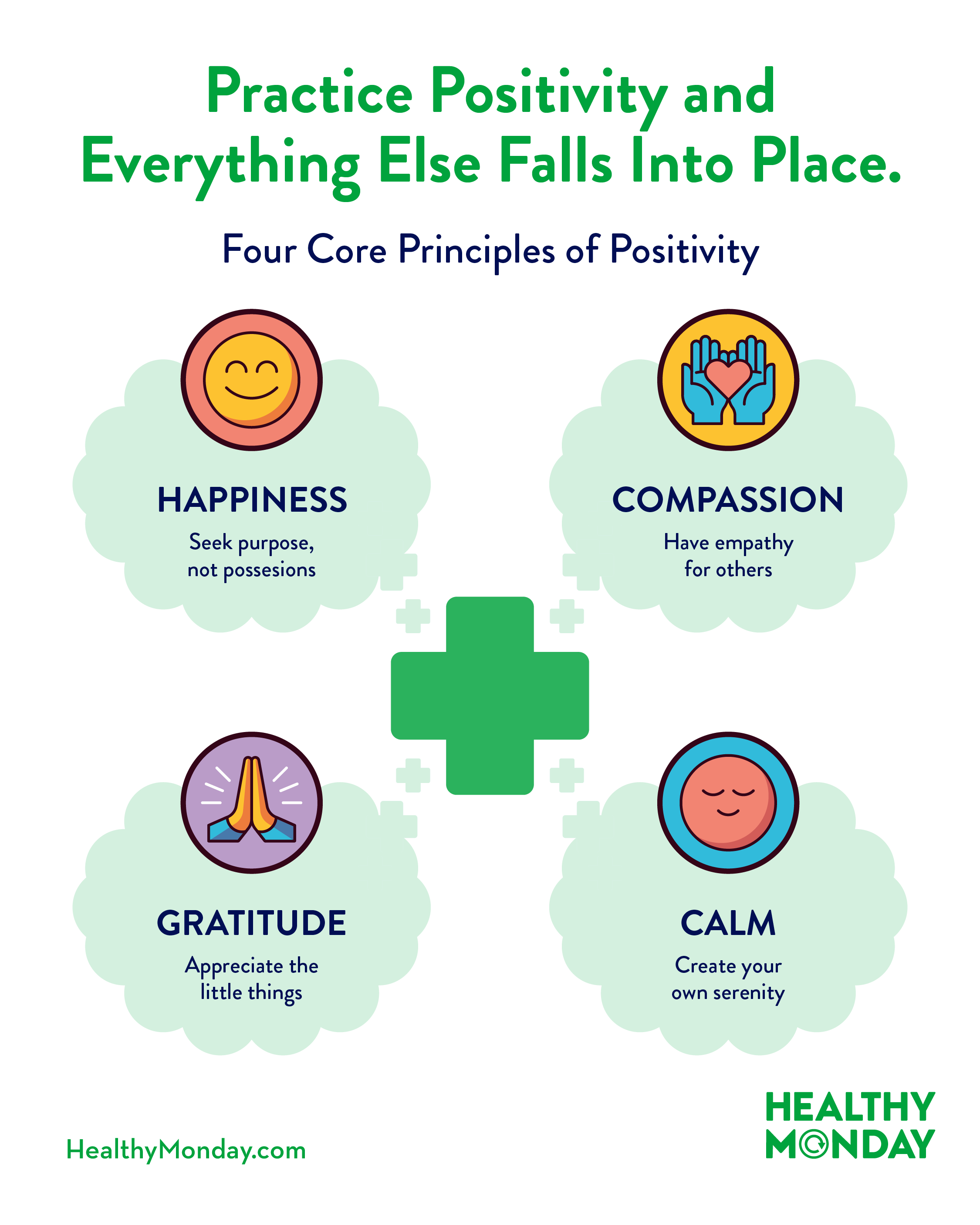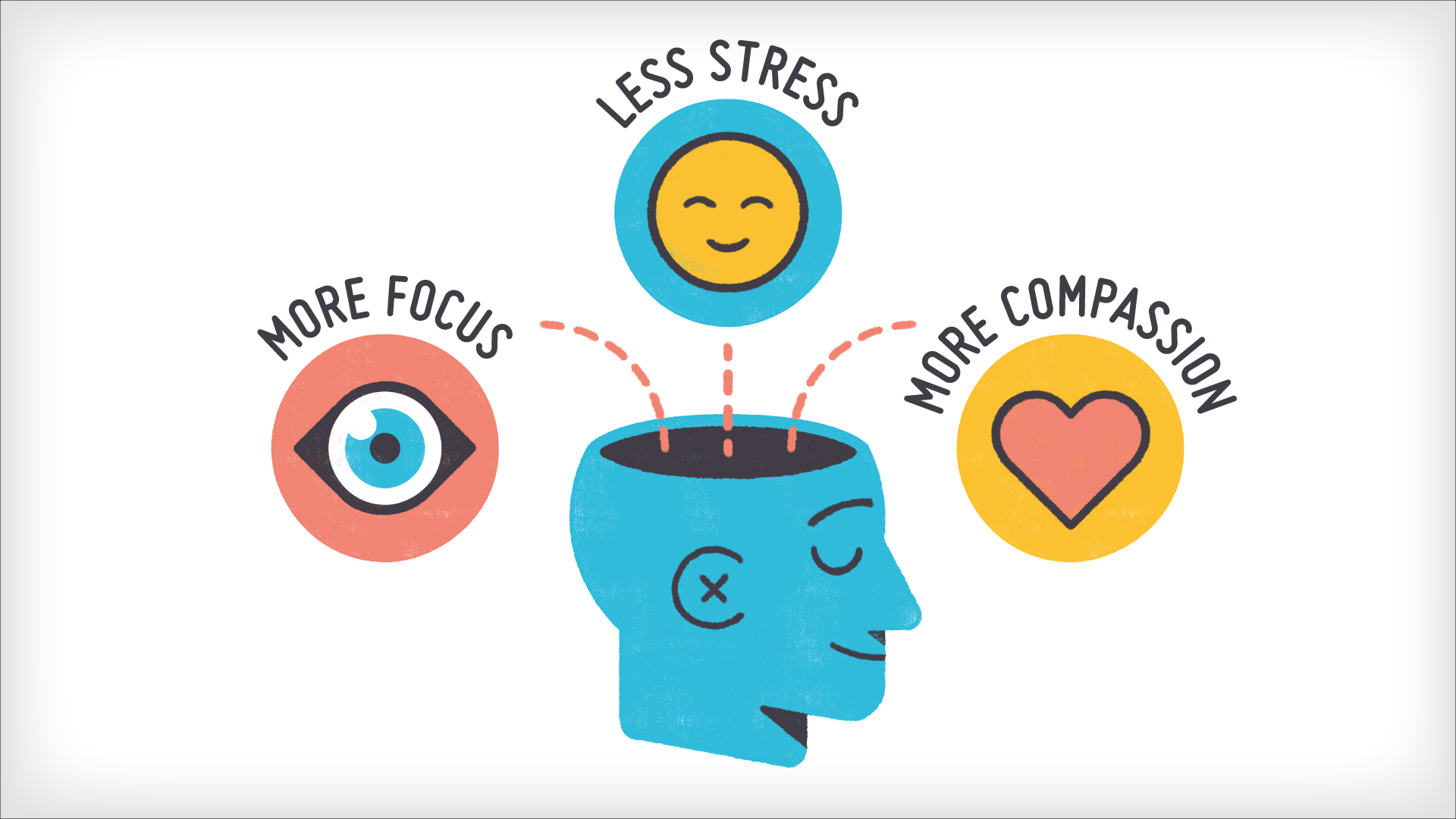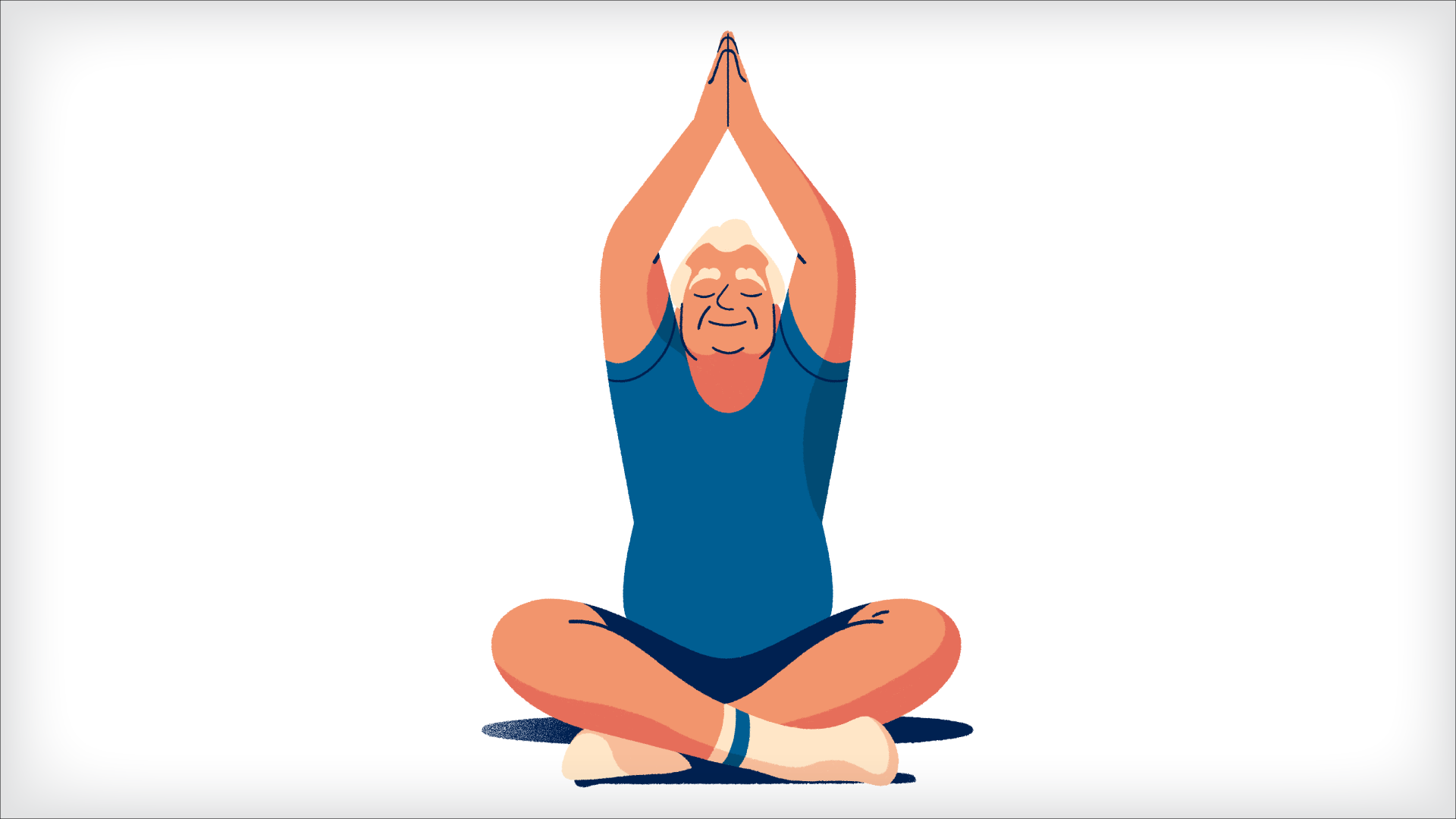Intro to Positivity
Staying positive helps us through the down days and the tough times. But positivity can be more than just a temporary state-of-mind. By aligning your actions and perceptions, positivity becomes a lifestyle.
But what is positivity, if not just a passing feeling?
According to the Oxford English Dictionary, positivity is: “The practice of being or tendency to be positive or optimistic in attitude.” Therefore, positivity isn’t something you are, but rather something you do.
Still, this definition raises an important question: How can one practice positivity?
DeStress Monday breaks down the concept of positivity into four core principles: happiness, compassion, gratitude, and calm. By actively incorporating these principles into daily life, an individual—regardless of age, background or experience—can bring more joy, satisfaction, and fulfillment into their world.
This Monday, learn more about the four core principles of positivity and their benefits.
The Benefits of Positivity
When you’re feeling optimistic, things just seem to fall into place. That’s because positivity perpetuates positivity. If your life is full of joy and contentment, those feelings spill over into every aspect of your life.
Evidence suggests adopting an optimistic point of view can help people feel better about daily life, as well as improve health and reinforce positive thoughts and emotions. For example, one study found that optimists had lower levels of cortisol—a stress hormone—in their bodies, while another study of 11,000 men and women, demonstrated that study participants who reported being happy lived longer and had fewer heart attacks and strokes.
As a result of having a positive outlook, optimistic people also engage in more healthier behaviors and healthier approaches to challenges, which leads to a better quality of life. They are also more likely to be offered jobs and be more resilient.
The Four Core Principles of Positivity
Positivity is an overarching concept that consists of four core principles: happiness, compassion gratitude, and calm. Understanding these four categories will help with incorporating positivity into your mindset and daily interactions.
Happiness
Happiness doesn’t come from accumulating wealth or material possessions; happiness is a byproduct of self-fulfillment and purpose. By taking action and living in the present, it’s possible to limit disruptions and distracting thoughts, and focus on the hobbies, people, and past-times you enjoy. And like positivity, happiness is contagious. Taking the steps to put yourself in a happier mindset will not only affect your life, but it will impact the lives of everyone around you. This Monday, try spreading good vibes with a phone call, kind word, or even a social media post.
Compassion
Compassion is an important element of positivity rooted in empathy. The practice of cultivating empathy—stepping into someone else’s shoes—enables us to become more attuned to other people’s feelings and perspectives, especially when they are different from our own. This helps others to feel supported, but it also benefits our own lives by strengthening our relationships and inspiring collaboration, whether at home or at work. But compassion can also be directed inwards. Displaying compassion for oneself can open up the heart and minimize judgement of others. This Monday, try taking a walk in someone else’s shoes.
Gratitude
Gratitude means taking what you have and making it enough. Showing appreciation for things we may take for granted—family, friends, good health, that morning cup of coffee—can help a person cultivate a more positive outlook, while minimizing negative thoughts and feelings. Research suggests that embracing gratitude leads to a greater likelihood of engaging in healthy behaviors, increased happiness and life satisfaction, decreased materialism, and improved social relationships. In qualitative research, gratitude is often cited as the “mother of all virtues,” proceeding the development of other positive traits like patience, humility, and wisdom. This Monday, acknowledge the special people in your life with gratitude list.
Calm
Some things in life are beyond control, but there are ways to find calm amidst the chaos. Mindfulness techniques such as meditation and deep breathing can help individuals achieve a sense of calm and focus by reducing the impact and frequency of negative thoughts. Redirecting the negative energy toward positive action can lead to beneficial changes in behavior. This Monday, find a moment of calm using a one-minute meditation.



